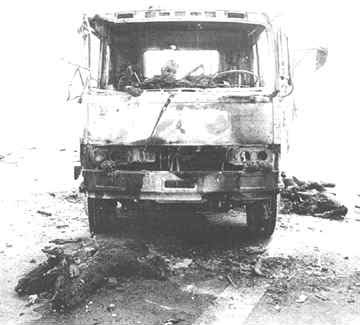"What
about withdrawal? Few Americans who have served in Vietnam can stomach this idea...Withdrawal...means that the United States' prestige will be lowered throughout the world, and it means the pressure of Communism on the rest of
South East Asia will intensify. Lastly, withdrawal means that throughout the world the enemies of the West will be encouraged to try insurgencies like the one in Vietnam."
David Halberstam,
The Making of a Quagmire, 1965.
Mr. Halberstam could not possibly have known how widespread the sentiments expressed in the quote above were accepted as Gospel by the military, politicians, and the American public. Despite the near total debunking of
'The Domino Theory', the end of the
Cold War, the collapse of the
Soviet Union,
the rapprochement with China, and the new
Global Economy (which makes war ever more ruinous for both combatants and noncombatants alike),
American Foreign Policy in the post Vietnam era continues to be based on the manipulation of the populace by fear mongering and the threat of annihilation by enemies both real and imagined. This has the effect of greatly increasing the power of the Federal Government Vi's a Vi's State Governments in general, and enhances the position of the
Executive Branch of the Federal Government in particular. The founding fathers would not be happy, especially the Jeffersonians. A practical result of this concentration of power in the hands of the President and his Cabinet is the need to perpetuate certain public perceptions regarding world events. A free and independent press makes this impossible, hence the antagonistic attitude of the Federal Government and the
Military Industrial Complex towards the mass media. The book
"Second Front-Censorship and Propaganda in the 1991 Gulf War", which goes to very great lengths to detail the strenuous efforts on the part of both the Feds and the Pentagon to disguise the truth of our foreign policy in the U.S., is as topical Today as it was in 1992.

Burned out U.S. ammunition vehicle, with dead soldiers, killed in a 'Friendly Fire incident, 1991




 Burned out U.S. ammunition vehicle, with dead soldiers, killed in a 'Friendly Fire incident, 1991
Burned out U.S. ammunition vehicle, with dead soldiers, killed in a 'Friendly Fire incident, 1991


